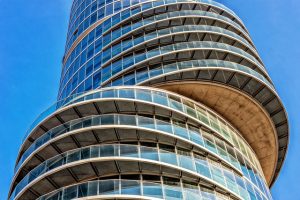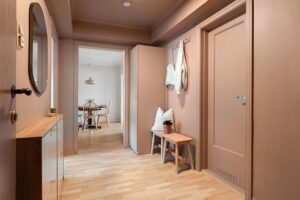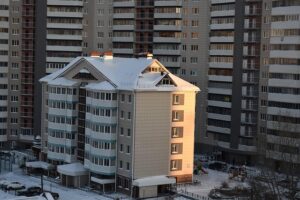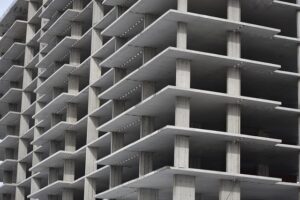Navigating Executive Condo Eligibility and Ownership in Singapore: A Guide to Upcoming ECs
The upcoming "Ec" in Singapore offers a middle-ground housing option for first-time homeowners and upgraders from public to private housing, combining affordability with condominium living amenities. Designed for eligible individuals or families wit…….

The upcoming "Ec" in Singapore offers a middle-ground housing option for first-time homeowners and upgraders from public to private housing, combining affordability with condominium living amenities. Designed for eligible individuals or families with Singapore citizenship or permanent residency, and income ceilings, these units are available at subsidized rates compared to traditional HDB flats. Ec residents enjoy the convenience of living near essential amenities and transport options in mature estates or future developments. After a minimum occupation period of 5 years, ECs automatically convert to private property, enhancing their resale value. Prospective buyers must consider the Total Debt Servicing Ratio (TDSR), additional costs like legal fees and maintenance fees, and grants for first-timers when financing their purchase. The evolution of Ec reflects a responsive housing policy adapting to various demographics, with the government providing diverse financial support through housing grants and loan options. Understanding the transition process, market trends, and the potential for capital appreciation post MOP completion is vital for those looking at long-term investment opportunities in Singapore's property market.
Exploring the nuances of Executive Condominium (EC) eligibility in Singapore is essential for aspiring homeowners. This article demystifies the process, tracing the evolution from public to private housing and outlining the criteria for applying for an upcoming EC. Prospective buyers will gain insights into financing options, the mandatory five-year minimum occupancy period, and resale or subsale opportunities post-privatization. Whether you’re considering an EC for its balanced living proposition or as a strategic investment, understanding these aspects is key to navigating the property landscape effectively.
- Understanding the Executive Condominium (EC) Concept and Its Appeal for Homebuyers
- The Evolution of ECs: From Public to Private Housing
- Eligibility Criteria for Applying for an Upcoming EC in Singapore
- Financing Your EC Purchase: Loan Options and Requirements
- The 5-Year Minimum Occupancy Period Before EC Becomes Private Property
- Resale and Subsale Options for EC Owners: What You Need to Know
Understanding the Executive Condominium (EC) Concept and Its Appeal for Homebuyers

Executive Condominiums (ECs) represent a unique housing option in Singapore, designed for both first-time homeowners and upgraders who aspire to enjoy the benefits of condominium living while remaining financially accessible. These homes offer the luxury and convenience of a private condo with amenities such as swimming pools, gyms, and playgrounds, yet they are sold at subsidized rates compared to traditional public housing flats. The appeal of ECs lies in their dual eligibility: they can be purchased by singles with an income ceiling or families with an average monthly household income not exceeding a specified limit. This makes them an attractive option for young couples and families looking to step into a larger space without the hefty price tag associated with full condominiums.
Moreover, ECs are situated in mature estates or areas slated for future development, offering residents accessibility and connectivity. They are strategically located near schools, shopping centers, and public transportation, making them highly sought after by those who prioritize convenience and community living. For those considering an EC, especially with the upcoming options available, it’s crucial to understand the criteria for eligibility, which includes being a Singapore citizen or permanent resident, as well as the resale restrictions that apply after fulfilling the minimum occupation period. Prospective buyers should also be aware of the income ceilings and the Total Debt Servicing Ratio (TDSR) requirements to ensure their application aligns with the regulations set forth by the Housing & Development Board (HDB). Understanding these aspects ensures that potential homeowners make informed decisions that cater to their lifestyle needs and financial commitments.
The Evolution of ECs: From Public to Private Housing

The concept of Executive Condominiums (ECs) in Singapore has evolved significantly since their introduction, reflecting a dynamic approach to housing policy that adapts to changing demographics and market needs. Initially conceived as a hybrid form of public housing designed for professionals and skilled workers, ECs provided an alternative pathway to ownership for those who might otherwise be priced out of the private property market. Over time, ECs have transitioned towards becoming a more privatized segment of the housing landscape. This shift is evident in the increasing popularity of ECs among upgrading families who seek larger living spaces and are willing to contribute to the development of newer estates. The eligibility criteria for purchasing an EC have also adapted to this evolution, with potential buyers now needing to meet income ceilings and other regulations set forth by the Housing & Development Board (HDB) and the Singaporean government. This move towards privatization has not only provided a stable investment opportunity for residents but has also ensured that the housing stock in these areas continues to be of high quality, aligning with the aspirations of contemporary homeowners. The evolution of ECs from public to private housing underscores the government’s commitment to responsive and adaptable housing policies that cater to the diverse needs of its citizens, making them an integral part of Singapore’s living landscape.
Eligibility Criteria for Applying for an Upcoming EC in Singapore

In Singapore, the Executive Condominium (EC) is a hybrid housing scheme designed for young couples and families who are unable to afford private property but have outgrown the Public Housing (HDB) flats. The eligibility criteria for applying for an upcoming EC are stringent and are set forth by the CPF Board, Housing & Development Board (HDB), and the Singaporean government. To be eligible, applicants must either be first-time applicants for a new EC, or have a flat sold by the HDB, and their total household income should not exceed S$14,000. Additionally, at least one applicant must be a Singapore citizen, and both singles and couples are allowed to apply jointly. Applicants must also not own another flat at the time of application. Those who have previously taken HDB loans to purchase or acquire an HDB flat will need to wait for a certain period before they can apply for an EC. Prospective buyers should also note that they must be at least 21 years old, and each family nucleus (husband, wife, and children) must not exceed five members. With the increasing popularity of ECs as a housing option due to their affordability and the possibility of future resale value or eligibility for upgrade to a private condominium after a certain number of years, understanding these criteria is crucial for potential applicants keen on applying for an upcoming EC in Singapore. Prospective buyers should keep abreast of the latest updates from official sources as the eligibility criteria can evolve with policy changes and market conditions.
Financing Your EC Purchase: Loan Options and Requirements

When considering the purchase of an Executive Condominium (EC) in Singapore, particularly in upcoming EC projects, understanding the financing options and associated requirements is paramount for prospective buyers. The Housing & Development Board (HDB) offers financial housing grants to eligible first-timer families purchasing new EC units. This assistance can significantly reduce the cost burden for these applicants. Prospective buyers who are not first-timers but meet the criteria may also apply for a grant, subject to grant availability and terms.
Securing a loan for your EC purchase involves several options. One of the primary choices is between bank loans and HDB loans. Both have their advantages; bank loans often come with competitive interest rates and flexible repayment tenors, while HDB loans offer favorable interest rates for a more stable repayment plan. To qualify for these loans, applicants must meet specific criteria set by the financial institutions or HDB. These typically include proof of regular income, a good credit history, and meeting the Total Debt Servicing Ratio (TDSR) framework to ensure that the monthly debt obligations do not exceed a significant portion of the borrower’s monthly income. Additionally, the loan-to-value (LTV) ratio will determine how much you can borrow based on the EC’s value. Prospective buyers should also be aware of additional costs such as legal fees, stamp duties, and the monthly maintenance fees for the property, which are essential considerations in the overall financial planning for their EC purchase.
The 5-Year Minimum Occupancy Period Before EC Becomes Private Property

When considering an Executive Condominium (EC) as your home, it’s crucial to understand the timeline for its transition from public to private housing. Upon acquiring an EC, Singaporean citizens and permanent residents are subject to a 5-year Minimum Occupancy Period (MOP). This period begins from the date the keys to the EC are received. During this time, you or your family must occupy the unit as your primary residence. After fulfilling the MOP, the EC will automatically upgrade to private property status. It’s a process that happens without any additional applications or paperwork. For those interested in an upcoming EC, this aspect of the MOP is particularly relevant, as it determines when you can sell your unit on the open market without restrictions. It’s advisable to plan ahead and consider this timeline as part of your long-term housing strategy when purchasing an EC. Once the MOP concludes, should you decide to sell, you will have more flexibility in the resale market, which could be beneficial if property values have appreciated over time. Understanding the MOP is key to making informed decisions about living in and eventually selling an Executive Condominium.
Resale and Subsale Options for EC Owners: What You Need to Know

In Singapore, Executive Condominiums (ECs) offer a unique blend of benefits for first-time homeowners who later have the option to sell their units in the open market upon meeting specific criteria. Resale and subsale opportunities for EC owners are plentiful, especially as these homes transition from being bounded by HDB resale leases to private property status after 10 years. For those considering an EC as their first home, it’s crucial to understand that after the initial five-year Minimum Occupation Period (MOP), you can sell your unit in the resale market. This transition makes ECs a versatile housing option, blending the benefits of public housing with the potential for capital appreciation when sold in the open market.
Subsequent to satisfying the MOP, EC owners have the flexibility to sell their units in both the resale and subsale markets. The distinction between resale and subsale is important: resale refers to selling your unit directly to a buyer through the HDB Resale Portal or private agreement, while subsale involves you selling your unit to another party who then sells it to the end buyer. The subsale pathway can be particularly attractive as it may allow for higher profit margins, given the right market conditions and unit valuation. Prospective EC owners should keep abreast of upcoming EC launches and pay attention to market trends, as these will influence both resale and subsale values. Understanding the nuances of resale and subsale in the context of EC ownership is essential for making informed decisions about your property portfolio.
Singapore’s Executive Condominium (EC) landscape offers a unique housing option for those who aspire to own a property without the full commitment of a private condo. This article has navigated through the various facets of EC living, from its evolution as a hybrid between public and private housing to the specific eligibility criteria prospective buyers must satisfy to apply for an upcoming EC. Prospective owners should also be well-versed in the financial commitments and loan options available, along with the stipulated minimum occupancy period before the EC can be privatized. For those considering resale or subsale opportunities, understanding these dynamics is equally crucial. In summary, the journey from an EC application to potential resale hinges on a clear grasp of the established guidelines and market trends. Prospective buyers are encouraged to carefully review the eligibility criteria and associated processes to ensure a smooth transition into EC living in Singapore’s dynamic property landscape.







